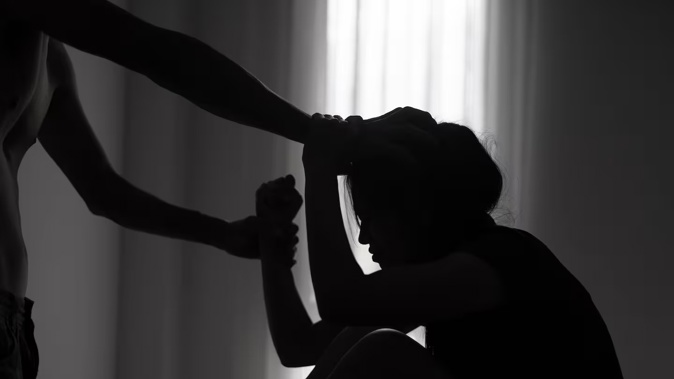
Warning: This story deals with intimate partner violence and self-harm.
A survivor of intimate partner violence has called for coercive control to be criminalised, similar to new legislation in two Australian states.
The Bay of Plenty woman has spoken out after the death of Tūrangi mother Maxine Puhi, who was killed by her partner in a suspected murder-suicide in August last year.
The woman – who NZME is not naming for safety reasons – called for criminal law to define coercive control so victims could identify it and seek legal action.
“When you don’t have legislation that correctly names and identifies this behaviour, a woman is at risk, basically. Her family is at risk.”
In July last year, New South Wales criminalised coercive control, described as when a person used “abusive behaviours towards a current or former intimate partner with the intention to coerce or control them”.
“The criminal offence captures repeated patterns of physical or non-physical abuse used to hurt, scare, intimidate, threaten or control someone.”
Queensland followed suit in May this year.
New Zealand’s Family Violence Act included “coercive or controlling” behaviour in its definition of family violence, but it is not criminalised as a standalone offence.
The Bay of Plenty woman’s calls are backed by family violence survivor advocate Debbs Murray, who said coercive control could result in victims considering or attempting suicide.
“We need something that recognises that from a criminal perspective,” Murray said.
Coercive control victim ‘didn’t see any way out’
The woman defined coercive control as a “consistent and persistent undermining” of someone’s liberty and autonomy.
She said she experienced “consistent” and “intrusive” behaviour from the start of her abusive relationship.
“He had decided he wanted a relationship with me, and he was not going to be told otherwise.”
He stayed nearby and “made me” see him, she said.
“I tried to leave, and that’s where all the threats and the coercive behaviour kind of came in.”
The woman said he would constantly message her as he tried to find out her address and “to know where I was and what I was doing”.
The woman said she was sexually assaulted, strangled, stalked, and harassed.
She tried to take her own life.
“I didn’t see any way out.”
The relationship ended when he left her.
She never reported what happened to the police.
“It’s impossible to prove … it’s me against his word.
“That’s where the laws around coercive control need to come in because we can look at messages and we can say … ‘this is controlling behaviour’.”
Years after the relationship ended, the woman said she was still seeing a counsellor through ACC.
Now, her life was “a lot better, but there’s still fear”.
“My ultimate goal … is to actually come forward to speak to police.”
Murray founded Eclipse Family Violence Services in 2021, which trained frontline responders and practitioners from a “lived experience perspective”.
She said coercive control was recognised in the Family Violence Act but not criminalised in New Zealand.
In her view, this approach did not address the consequences of extreme coercive control.

Debbs Murray founded Eclipse Family Violence Services after her experiences with abuse and coercive control.
Murray said international research had shown family violence-related suicide was more prevalent than family violence-related homicide.
She said there were “very few” victims of coercive control who had not considered or attempted suicide.
“We don’t measure adequately enough [the] risk of suicide as a direct consequence of family violence.”
Murray said most family violence was “unseen” and the issue should not be measured only by “black eyes and broken bones”.
“The majority of family violence is broken hearts and broken souls, lost identity and this depth of despair that truly does lead people to take their own lives.”
Murray said it was not only about a punitive approach but ensuring there was “positive, long-term, sustainable therapeutic intervention” for predominant aggressors.
Murray said Eclipse was also striving for social and sectoral change.

Justice Minister Paul Goldsmith. Photo / Mark Mitchell
Minister of Justice Paul Goldsmith said: “We are not currently considering a standalone coercive control offence, as there is a very busy pipeline of Justice legislation, including changes to specifically criminalise stalking.
“However, we are aware of concerns raised and will consider potential options when resourcing allows.”
Family violence
How to get help:
If you’re in danger now:
• Phone the police on 111 or ask neighbours or friends to ring for you.
• Run outside and head for where there are other people. Scream for help so your neighbours can hear you.
• Take the children with you. Don’t stop to get anything else.
• If you are being abused, remember it’s not your fault. Violence is never okay.
Where to go for help or more information:
• Women’s Refuge: Crisis line - 0800 REFUGE or 0800 733 843 (available 24/7)
• Shine: Helpline - 0508 744 633 (available 24/7)
• It’s Not Ok: Family violence information line - 0800 456 450
• Shakti: Specialist services for African, Asian and Middle Eastern women and children.
• Crisis line - 0800 742 584 (available 24/7)
• Ministry of Justice: For information on family violence
• Te Kupenga Whakaoti Mahi Patunga: National Network of Family Violence Services
• White Ribbon: Aiming to eliminate men’s violence towards women.
Megan Wilson is a health and general news reporter for the Bay of Plenty Times and Rotorua Daily Post. She has been a journalist since 2021.
Take your Radio, Podcasts and Music with you









